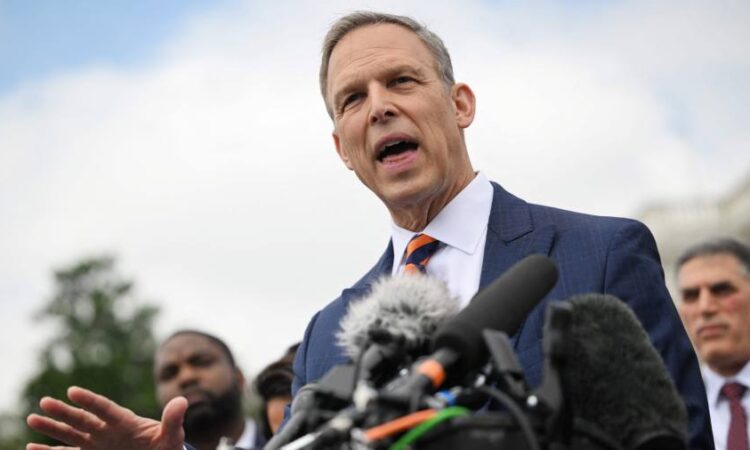
A bipartisan deal to raise the US debt ceiling cleared its first big legislative hurdle in a House of Representatives committee on Tuesday, as lawmakers rushed to whip votes in support of the agreement and avert a default.
The White House and Kevin McCarthy, the Republican Speaker of the House, struck a deal at the weekend that would suspend the debt ceiling until after the next presidential election in 2024. It caps discretionary spending for two years, tightens requirements for some social programmes, cuts funding for the Internal Revenue Service and speeds up permitting for big energy and infrastructure projects.
A narrow majority of members of the powerful House rules committee advanced the bill late Tuesday, setting the stage for a make-or-break vote in the full House as soon as Wednesday.
The compromise needs to pass both the House and the Senate if it is to become law before next week. Janet Yellen, Treasury secretary, has warned the federal government will run out of money on June 5 if the debt ceiling is not raised in time.
The White House and McCarthy have both expressed optimism that their agreement will be approved by both chambers of Congress. But a growing number of lawmakers from both parties have come out against the deal, raising the stakes for what could be a nail-biter of a vote on the House floor.
Earlier on Tuesday, hardline Republican lawmakers vowed to “do everything” in their power to stop the bill from being signed into law.
Scott Perry, a rightwing congressman from Pennsylvania who chairs the House Freedom Caucus, said McCarthy had “totally fail[ed] to deliver” on his mandate to “hold the line” in negotiations with the White House.
Perry and other hardliners championed McCarthy’s opening gambit in the negotiations — the Limit, Save, Grow Act — that would have raised the debt ceiling until next year with steep spending cuts and a rollback of some of President Joe Biden’s biggest policies such as student loan debt forgiveness.
Standing in front of 10 fellow Republicans who joined in his attacks on the deal, Perry said: “These members and others will be absolutely opposed to the deal and we will do everything in our power to stop it, and end it now.”
Perry stopped short of calling for McCarthy to lose his job over the deal but his comments pile pressure on the Speaker as he seeks to shore up support.
Republicans control the House by a razor-thin margin. With more than a dozen of the party’s members saying in public they will vote against the deal, McCarthy must rely on a critical mass of support from House Democrats to get the bill over the line.
Many of McCarthy’s former critics have applauded the lawmaker — who was elected Speaker in January despite fierce opposition from members of his own party — for his handling of the debt ceiling issue.
But several members of the Freedom Caucus have threatened to invoke a “motion to vacate”, or vote of no confidence, in McCarthy if he does not answer their calls to abandon the deal.
Chip Roy, the Republican congressman from Texas, told talk radio host Glenn Beck on Tuesday that if the debt ceiling becomes law, “we’re going to have to then regroup and figure out the whole leadership arrangement again”.
It remains unclear how many Democrats will back the compromise deal when it comes to a vote on the House floor. Many progressive lawmakers have questioned whether Biden gave away too much to Republicans in the talks.
Pramila Jayapal, the Democratic House member who chairs the Congressional Progressive Caucus, said her group was counting votes before deciding whether to take an “official position”. Leaders of the New Democrat Coalition, a more centrist group of Democratic lawmakers, released a statement on Monday encouraging their members to back the deal.
The Congressional Budget Office, a government agency that analyses the impact of legislation for lawmakers, said late Tuesday that the deal would lower deficits by $1.5tn over the next decade, compared to current projections. While conservative opponents of the deal will see that figure as too small, it could give comfort to mainstream and moderate Republicans who are leaning towards backing the agreement.
Additional reporting by Colby Smith



